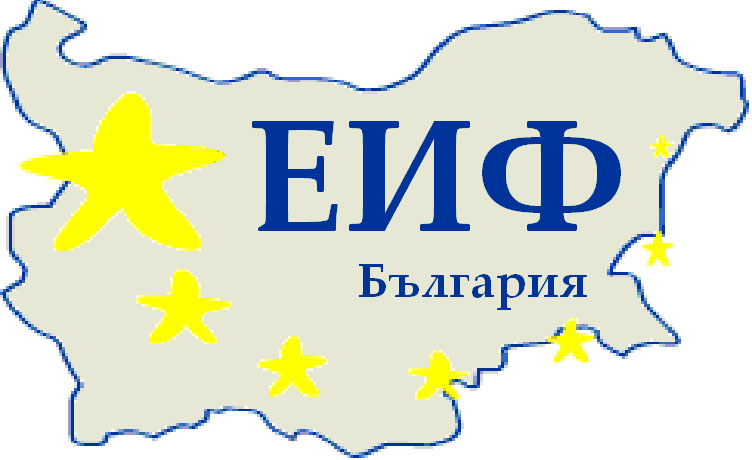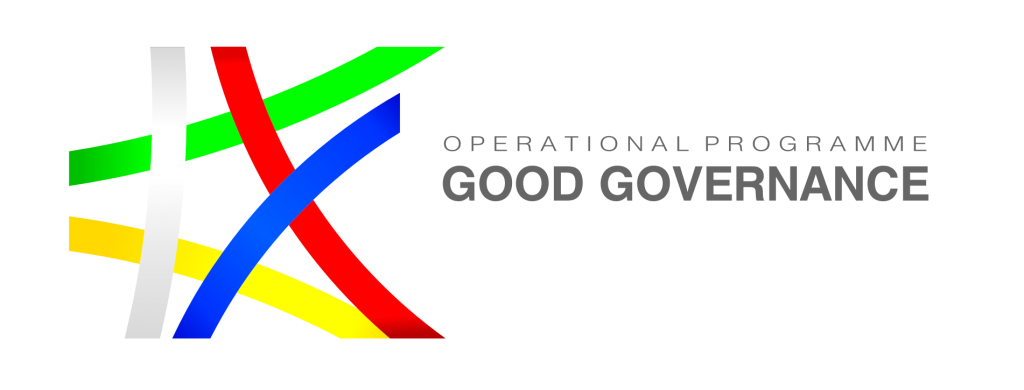

PROJECT: „IMPLEMENTATION OF COURSES FOR IMMIGRANTS IN REAL TIME”
SUBSIDY CONTRACT No BG EIF 2010/01-02.01
This project is implemented with the financial support of the European Union through the European fund for the integration of third-country nationals
EUROPEAN FUND FOR THE INTEGRATION OF THIRD-COUNTRY NATIONALS
Introduction:
With The Hague Programme adopted by the Council from 4-5th November 2004 a discussion is opened on labor migration issues in the EU. This debate together with the best practice in the member states established the basis of the adopted in December 2005 Policy Plan on Legal Migration in the EU. With a view to The Hague Programme directions the Council of the European Union and the representatives of the governments of the member states established „Common basic principles for immigrant integration policy in the European Union”. The common basic principles support the EU member states in determining the integration policies through guidelines of basic principles on the basis of which they can estimate their efforts in this field.
In May 2007 the General Programme “Solidarity and the Management of Migration Flows” (SOLID) started. SOLID supports the equitable distribution of the responsibilities between the member states in result of the implementation of integrated management of the Union’s external borders and from the implementation of common asylum and immigration policies. For the implementation of the objectives of SOLID 4 financial instruments are established directed to ensuring investment support to the EU member states in order to assist their efforts in development and application of the policies in the following spheres: External Borders Fund (EBF), European Return Fund (RF), European Refugee Fund (ERF) and European Fund for the Integration of Third-Country Nationals (European Integration Fund – EIF).
The European Fund for the Integration of Third-Country Nationals for the period 2007-2013 is established with Decision 2007/435/EC of the Council of 25 June 2007 as a part of SOLID with the aim to support the efforts made by the Member States in enabling third-country nationals of different economic, social, cultural, religious, linguistic and ethnic backgrounds to meet the conditions of residence and to facilitate their integration into European societies in accordance with „Common basic principles for immigrant integration policy in the European Union”.
The general objective of the Fund is to support the efforts made by the Member States in enabling third-country nationals of different economic, social, cultural, religious, linguistic and ethnic backgrounds to meet the conditions of residence and to facilitate their integration into European societies. EIF is mainly directed to activities related to integration of third-country nationals who stay for a long time on the territory of EU member states with the exclusion of the following categories:
– Season workers as determined in national law;
– third-country nationals admitted with the aim of education, students exchange, unpaid practice or charity in accordance with Directive 2004/114/EC of the Council;
– third-country nationals admitted with the aim of scientific research in accordance with Directive Директива 2005/71/ EC of the Council;
– third-country nationals received an extension of the issued by the member state permission to stay or change of stay status including also third-country nationals who receive the status of long-term in accordance with Directive 2003/109/EC.
In order to further this objective, the Fund contributes to the development and implementation of national integration strategies for third-country nationals in all aspects of society, taking particular account of the principle that integration is a two-way dynamic process of mutual accommodation by all immigrants and residents of Member States. EIF also supports the EU member states to improve their capacity in development, implementation, monitoring and general estimation of all strategies, policies and measures for third-country nationals integration such as exchange of information, best practices and cooperation in and between the EU member states which contribute to this capacity improvement.
Institutional framework:
The EIF National coordinator for Bulgaria is the minister of labour and social policy with Protocol No 46 from the meeting of the Council of ministers of the Republic of Bulgaria of 6 December 2007.
The managing and control bodies for the implementation of the long standing and annual programmes implementing the EIF objectives in Bulgaria are:
– Managing Authority (MA) – team of Direction „European issues and international cooperation”
– Certifying Authority (CA) – team of General Direction „European funds, international programmes and projects”
– Auditing Authority (AA) – team of Direction „Internal audit”
Procedure:
EIF 2010 Annual programme; Scheme BG EIF 2010/01, Procedure „Integrated scheme for provision of grant award for implementation of actions aiming to introduce in practice „Common basic principles for immigrant integration policy in the European Union” and strengthening the capacity for the implementation of such activities”;
The objectives of the procedure are in line with the objectives of 2010 Annual Programme and they include:
Priority 1
Implementation of actions aiming to introduce in practice „Common basic principles for immigrant integration policy in the European Union”
Operation objective 1.1. Implementation of priorities, measures and activities set out in the strategic documents of Bulgaria through introducing flexible forms of education, skills, experience and information including information campaigns and centres providing information aiming to achieve the EU Common basic principles for immigrants integration (third-country nationals) in Bulgaria.
Operation objective 1.2. Implementation of consistent and long-term policy to guarantee immigrants rights (third-country nationals) and their successful integration in the Bulgarian society.
Priority 2
Development of indicators and methodologies for progress measurement, revision of policies and measures and coordination improvement Разработване на индикатори и методологии за оценка на напредъка, корекция на политики и мерки и за подобряване на координацията
Operation objective 2.1. Collection of data, research and analyses of immigrants policy and practice (third-country nationals) and improvement of the indicators and methodologies for estimation of the applied integration policy and measures.
Priority 3
Capacity building for implementation of integration policy, coordination and establishment of multicultural competences among the different levels of integration implementation
Operation objective 3.1. Capacity strengthening of civil society, social partners, local authorities, international organizations, academic communities, NGOs and also different immigrant communities (third-country nationals) for common cooperation and actual participation in the integration process.
In the current procedure the following activities are selected from the 2010 EIF Annual Programme:
Activity 1. Support for the development and operation of existing immigrants information centres (third-country nationals) in order to ensure sustainability.
Activity 2. Support for the implementation of course for immigrants contributing to their successful integration in the Bulgarian society – courses in Bulgarian language, civic orientation, history, traditions, customs, etc.
Activity 3. Support for the implementation of information campaigns targeted to the media and the reception society in order to raise the knowledge of migration phenomenon and the acceptance of the related results and impact.
Activity 4. Support for the implementation of analyses and research in the field of integration policy including collection of data and improvement of the monitoring and evaluation of integration techniques and measures.
Activity 5. Support for capacity building at all levels of integration policy and practice with the participation of municipalities, social partners, NGOs, academic societies, etc. and for the enlargement and improvement of the mechanisms for coordination at national, regional and local level among the participants in the integration process with the aim to improve the implementation, coordination and establishment of multicultural competence in the application of the integration measures.
Components:
Component 1: Support for the development and operation of existing immigrants information centres (third-country nationals) in order to ensure sustainability.
Component 2: Support for the implementation of course for immigrants contributing to their successful integration in the Bulgarian society – courses in Bulgarian language, civic orientation, history, traditions, customs, etc.
Component 3: Support for the implementation of information campaigns targeted to the media and the reception society in order to raise the knowledge of migration phenomenon and the acceptance of the related results and impact.за миграционния феномен и приемането на свързаните резултати и въздействия
Component 4. Support for the implementation of analyses and research in the field of integration policy including collection of data and improvement of the monitoring and evaluation of integration techniques and measures.
Component 5. Support for capacity building at all levels of integration policy and practice with the participation of municipalities, social partners, NGOs, academic societies, etc. and for the enlargement and improvement of the mechanisms for coordination at national, regional and local level among the participants in the integration process with the aim to improve the implementation, coordination and establishment of multicultural competence in the application of the integration measures.
 This project is implemented by EU This project is implemented by EU |
 This project is performed by RMA “Maritza” This project is performed by RMA “Maritza” |
|---|
“This document is created with the financial support of the European fund for the integration of third-country nationals co financed by the European Union. The whole responsibility for the contents of this Internet site is being born by RMA “Maritza” and under no circumstances it cannot be considered that it presents the official statement of the European Union and the Contracting Authority.”





